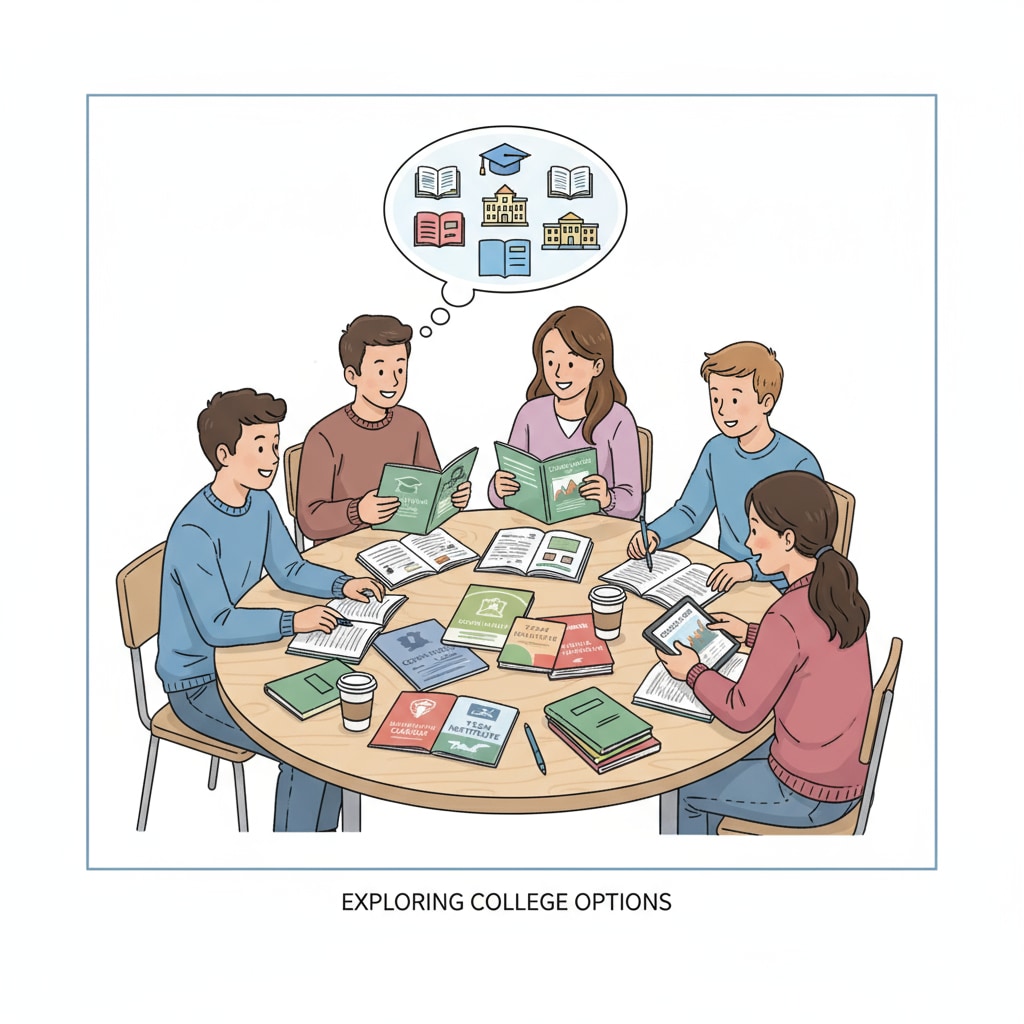University planning, major selection, and academic success are crucial aspects for high school students as they navigate towards their future. As they stand at this crossroads, making informed decisions can significantly shape their academic and professional trajectories.

Early Academic Planning
High school is the foundation for future academic pursuits. Students should start by focusing on their core courses such as math, science, language arts, and social studies. These subjects not only build a strong knowledge base but also help in developing critical thinking and problem-solving skills. For example, excelling in math can open doors to various majors like engineering, computer science, and finance. In addition, getting involved in extracurricular activities related to academic interests can enhance a student’s profile. Participating in science fairs, debate clubs, or language competitions can demonstrate passion and commitment. Education on Britannica

Researching Universities
When it comes to choosing a university, there are numerous factors to consider. Location plays a vital role. Some students prefer big cities for the vibrant cultural and internship opportunities, while others may opt for smaller towns for a more serene learning environment. University reputation is also important. Research rankings, faculty achievements, and alumni success stories. For instance, a university known for its strong business program may be ideal for those interested in entrepreneurship. Moreover, the available majors and academic resources should align with a student’s interests. Checking if the university has state-of-the-art laboratories, libraries, and research facilities can ensure a quality education. University on Wikipedia
Once a list of potential universities is compiled, students should visit the campuses if possible. This hands-on experience can give them a feel of the campus culture, student life, and the overall environment. It helps in making a more informed decision about whether the university is the right fit.
Selecting the Right Major
Choosing a major is a significant decision that can influence a student’s career path. High school students should take time to explore their interests and passions. They can start by reflecting on the subjects they enjoy the most in school, the hobbies they pursue outside of class, and the skills they possess. For example, if a student loves writing and has a talent for storytelling, majors like journalism, creative writing, or English literature could be suitable. Additionally, researching the job prospects and career opportunities associated with different majors is essential. Some majors may have a higher demand in the job market, while others may offer more specialized career paths.
Another aspect to consider is the flexibility of the major. Some universities offer interdisciplinary programs that allow students to combine multiple fields of study. This can provide a broader skill set and increase career options. Students can also talk to current students or alumni in the desired major to gain insights into the curriculum, workload, and real-world applications.
Achieving Academic Success in University
Once in university, students need to adopt effective study strategies. Creating a regular study schedule, managing time wisely, and setting goals are fundamental. They should also take advantage of the academic resources available on campus, such as tutoring centers, writing labs, and study groups. Building relationships with professors can also enhance the learning experience. Professors can offer guidance, provide valuable feedback, and may even recommend students for research opportunities or internships.
Balancing academics with extracurricular activities is equally important. Participating in clubs, sports teams, or volunteer work can help students develop leadership skills, socialize, and enhance their overall college experience. However, it’s crucial to find the right balance to avoid burnout and ensure academic performance is not compromised.
Readability guidance: This article uses short paragraphs and lists to summarize key points. Each section provides practical advice. The passive voice is minimized, and transition words are used throughout to enhance flow and clarity. The focus is on providing high school students with actionable steps for successful university planning, major selection, and academic achievement.


